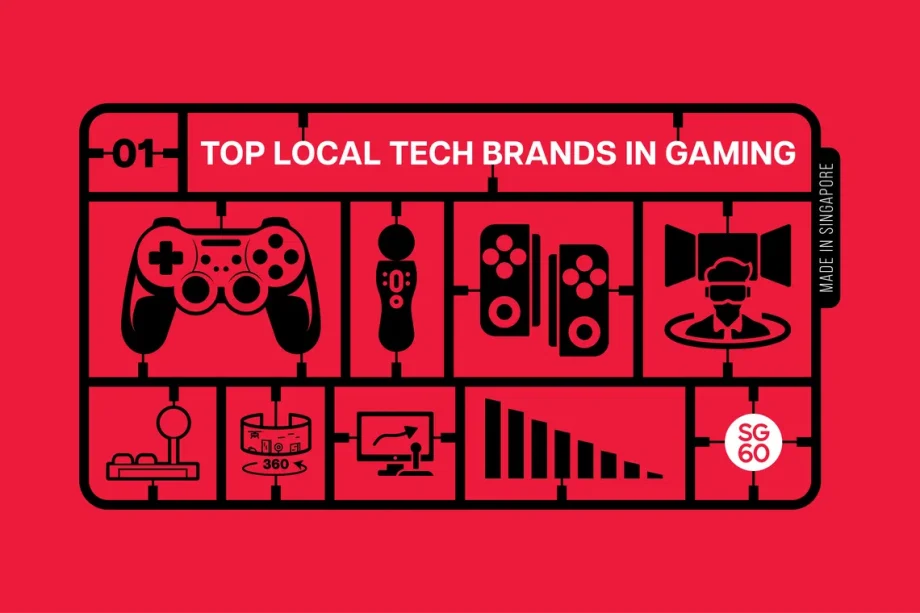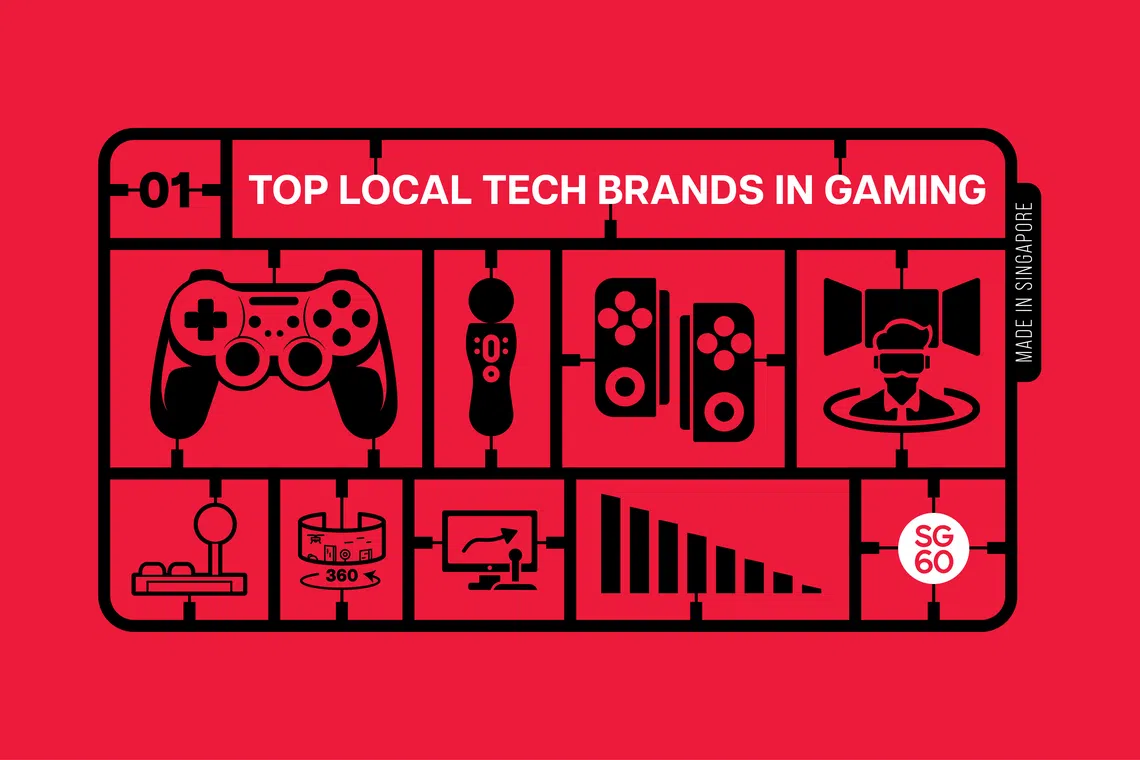HardwareZone celebrates Singapore’s 60th birthday with a series of articles showcasing local tech brands that have helped build our nation and put us on the world stage. Some of these brands have become household names, while others are lesser-known but no less innovative. You might even be surprised to learn about some popular technologies that got their start, originated from right here on our little Red Dot.
(This article is one of 7 parts in our SG60 Tech Special series. Additional note: We intended for this series to go live earlier as HardwareZone also turns a year older on the same date as Singapore, but our site revamp had to take priority.)
Over the decades, Singapore’s gaming industry has grown from humble beginnings into a thriving global powerhouse. From revolutionary gaming hardware to globally popular video games, these local companies have redefined what it means to play, create, and compete. In this feature, we spotlight the brands that have turned Singapore from a little red dot into a hub for gaming innovation, creativity, and excellence.
1. Creative Technology
Founded in 1981 by local childhood friends – the late Sim Wong Hoo and Ng Kai Wa – Creative Technology is a pioneer in Singapore’s tech scene and became globally renowned for its Sound Blaster audio cards, which revolutionised PC audio in the 1990s.
However, Creative’s journey didn’t begin with audio cards. In fact, it started as a computer repair shop. And in 1984, the company released the “Talking Computer” Cubic 99, featuring a vocal synthesizer. This was followed by the Cubic CT, a PC with multimedia features and Chinese language capabilities. Unfortunately, both products were not commercially successful.
From 1987 to 1989, Creative shifted its focus to sound technology. In 1989, it struck gold with the Sound Blaster audio card, which enabled PCs to play high-quality sound. For PC gamers back then, a Sound Blaster card was an essential gaming rig component. At its peak, Creative sold 10,000 Sound Blaster units per month. In 1992, it became the first Singaporean company to be listed on the US Nasdaq stock exchange.
In the early 2000s, Creative launched its ZEN MP3 players, a direct competitor to Apple’s iPod. Notably, it famously won a patent dispute over the MP3 player’s user interface in 2006, forcing Apple to pay Creative US$100 million.
Today, Creative continues to innovate with its award-winning Super X-Fi holographic audio technology, launched in 2018. The technology powers Creative’s gaming headsets and other products, cementing its legacy as a key player in audio innovation. Although co-founder Sim Wong Hoo passed away in 2023, his legacy continues to inspire.
Key Events:
2. Razer
Razer is synonymous with gaming, thanks to its iconic “For Gamers. By Gamers.” slogan. Co-founded by Singaporean Tan Min-Liang and American Robert Krakoff in 2005, Razer evolved from a small startup into a global gaming giant.
Razer began life in San Diego as a subsidiary of Karna LLC, producing the Boomslang gaming mouse, the world’s first high-performance gaming mouse. After Karna’s bankruptcy, Razer’s co-founders acquired the brand, rebranding it into the company we know today.
In 2006, Razer launched the DeathAdder gaming mouse, which became a bestseller and a gaming industry icon. This success was followed by other groundbreaking products, such as the BlackWidow mechanical gaming keyboard in 2010, and the Razer Blade laptop in 2011 that redefined gaming laptops with its sleek, thin design.
Razer’s growth continued with its listing on the Hong Kong Stock Exchange in 2017 and its bold foray into smartphones with the Razer Phone. Although the phone was discontinued in 2019, Razer’s revenue exceeded US$1 billion in 2020, cementing its place as a leader in gaming hardware.







